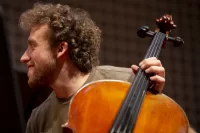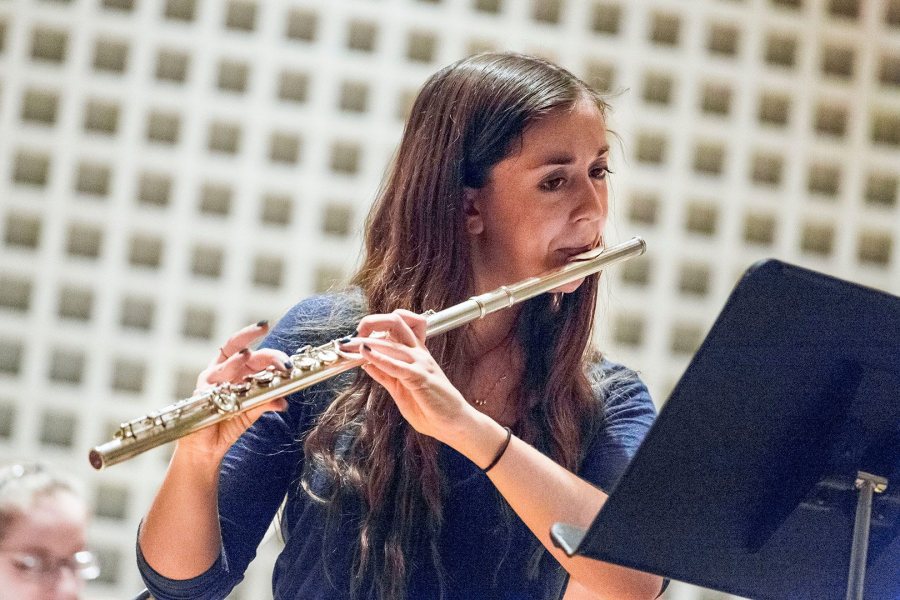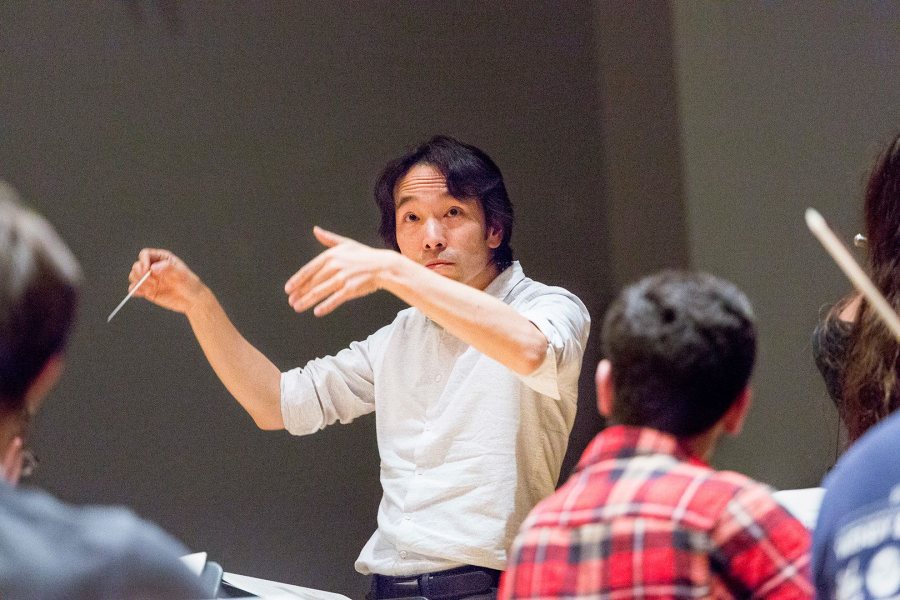
Becky Schwartz ’16 is flute soloist in Bates Orchestra program

Rebecca Schwartz ’16 of West Hartford, Conn., rehearses with the Bates College Orchestra on Nov. 3. (Josh Kuckens/Bates College)
Rebecca Schwartz ’16 first heard Carl Reinecke’s Flute Concerto in D major “in high school at a ‘flute boot camp,'” she says. “I instantly fell in love.”
Schwartz of West Hartford, Conn., is the flute soloist on the Reinecke with the Bates College Orchestra on Nov. 15.
“The melody is so rich and complex, and allows a lot of room for expression but definitely demands attention to technique,” she says. “It’s a beautiful piece that combines artistic freedom in some sense, but also requires focus and quite a bit of practice.”
An experienced musician whose performances prior to Bates included a European tour with her high school jazz band, Schwartz won a Bates concerto competition in September.
Directed by Hiroya Miura, associate professor of music, the orchestra program at 4 p.m. Sunday in the Olin Arts Center Concert Hall also features two familiar works by Czech composers:
• the popular “Vltava” movement, also known as “The Moldau,” from Czech composer Bedřich Smetana’s symphonic poem “Má Vlast” (“My Fatherland”);
• and Symphony No. 8 in G major, Op. 88, by Czech composer Antonín Dvořák.
The concert is open to the public at no cost, but tickets are required, available at bit.ly/oacbates. For more information, please contact 207-786-6135 or olinarts@bates.edu.

Hiroya Miura conducts the Bates College Orchestra in rehearsal on Nov. 3. (Josh Kuckens/Bates College)
Reinecke was a noted conductor and teacher as well as composer. He was 84 years old in 1908 when he composed the Flute Concerto, his second-to-last composition.
“For an early 20th-century work, the musical style of the concerto is more Romantic than post-Wagner,” Miura says. “The dialogue between the flute and orchestra is often playful within his balanced form and expressions.”
Like Reinecke, Smetana was born in 1824. As Miura explains, “he is considered the father of Czech nationalist style in music. He incorporated the folk rhythms and melody from his native Bohemia in his compositions.”
“Má Vlast,” written in 1872, “became the music associated with Czech nationalism,” says Miura. “It has been played every year at the Prague Spring International Music Festival since 1946.”
The longest river in the Czech Republic, the Vltava is central to Czech identity. Smetana’s 12-minute symphonic poem depicts the river’s course from its origins in mountain springs through the countryside to its entry into Prague.
“It’s remarkable to consider that Smetana was already deaf at the time of composition and how confident and precise he was in the execution of his musical imagination,” Miura points out.
Seventeen years younger than Smetana, Dvořák “was his spiritual successor, who expanded the language with his more pan-Slavic palette,” Miura says. Written in 1889, “his eighth symphony is also full of visual associations reminding the listener of the bucolic scenes of Bohemia and Silesia.
“He makes abundant use of folk melodies in all the movements, weaving the entire work into the organic fabric of lyrical phrases.”




